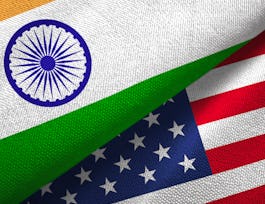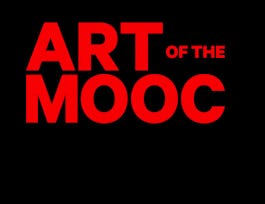The Diplomatic Practice course provides a comprehensive understanding of the evolving landscape of international relations. You'll explore negotiation techniques, the role of embassies and diplomats in safeguarding national interests, and the impact of globalization and technology on modern diplomacy. Discover the nuances of political, economic, and cultural diplomacy, along with emerging trends like diaspora and para diplomacy. Analyze the rise of hybrid diplomacy in a post-pandemic world.



Recommended experience
What you'll learn
Evaluate digital tools and social media’s impact on diplomacy; propose strategies for blending them with traditional diplomatic practices.
Analyze how economic diplomacy compares to political and cultural diplomacy in different geopolitical contexts.
Create a diplomatic strategy for a current issue, integrating political, economic, and cultural diplomacy for foreign policy objectives.
Synthesize historical and modern diplomatic practices to develop innovative hybrid approaches addressing globalization and digital challenges.
Details to know

Add to your LinkedIn profile
7 assignments
September 2024
See how employees at top companies are mastering in-demand skills


Earn a career certificate
Add this credential to your LinkedIn profile, resume, or CV
Share it on social media and in your performance review

There are 7 modules in this course
This module introduces the realm of Diplomatic Practice, exploring how states interact on the world stage. You'll delve into the concept of international relations, the legal definition of a state, and the significance of national interest in shaping foreign policy. Using the United States and India as examples, you'll examine how nations utilize negotiations to achieve their objectives. Finally, the module analyzes the challenges of modern diplomacy in a shifting global landscape.
What's included
13 videos7 readings1 assignment1 discussion prompt
This module explains how embassies (or high commissions) work as the primary hubs of diplomacy. You'll learn about their structure and operations, as well as the role of consulates in serving citizens abroad and increasingly in economic and cultural diplomacy. The module also covers Cultural and Trade Centers' contributions to diplomacy. Finally, you'll learn about alternative representation when two countries lack formal diplomatic relations, such as interest sections within a third country's embassy or the appointment of Honorary Consuls.
What's included
14 videos2 readings1 assignment1 discussion prompt
This module provides an overview of professional diplomatic services, focusing on the role of ambassadors and the process of becoming a diplomat, including recruitment, training, and diplomatic privileges outlined in the Vienna Conventions. It also examines the privileges of consulates and future trends in diplomacy.
What's included
12 videos3 readings1 assignment1 discussion prompt
This module explores different levels of diplomacy: bilateral, plurilateral, and multilateral. It explains Track 1 (government-to-government), Track 2 (think tanks and institutions influencing governments), and Track 1.5 (a mix of both). You'll learn how non-governmental actors like think tanks, universities, and NGOs are playing a growing role in diplomacy. Finally, the module examines the role of Chambers of Commerce in economic diplomacy and the influence of multinational corporations and lobbies on state diplomacy.
What's included
12 videos4 readings1 assignment1 discussion prompt
This module explores the interplay between political and economic diplomacy. You'll examine traditional political diplomacy tools like dialogue mechanisms, the role of foreign ministries and embassies, and the significance of summit diplomacy and state visits. The module also delves into economic diplomacy, covering free trade agreements, the World Trade Organization, and the geopolitical implications of initiatives like the Belt and Road Initiative and 5G technology.
What's included
12 videos2 readings1 assignment1 discussion prompt
This module explores the significance of a state's culture in international relations, highlighting cultural diplomacy and the role of institutions like India's ICCR. It delves into Joseph Nye's concept of "Soft Power" and its impact on public diplomacy, while acknowledging the challenges in measuring this power across diverse nations. The module also examines the growing influence of diasporas and their impact on state interests. Finally, it discusses the increasing role of subnational actors, such as provinces or states, in shaping diplomatic relations within federal systems.
What's included
12 videos2 readings1 assignment1 discussion prompt
This module explores the evolution of diplomacy, from traditional practices to the challenges of modern digital diplomacy in the age of instant communication and social media. It examines issues of sovereignty, secrecy, and trust raised by digital diplomacy, and the impact of COVID-19, highlighting both the limitations and necessities of virtual diplomacy. Finally, it emphasizes the need for today's diplomats to possess both expertise and adaptability, combining speed and substance in communication, while maintaining credibility in the media landscape.
What's included
12 videos4 readings1 assignment1 discussion prompt
Instructor

Offered by
Why people choose Coursera for their career




Recommended if you're interested in Social Sciences

University of California, Davis

O.P. Jindal Global University

Duke University

Open new doors with Coursera Plus
Unlimited access to 10,000+ world-class courses, hands-on projects, and job-ready certificate programs - all included in your subscription
Advance your career with an online degree
Earn a degree from world-class universities - 100% online
Join over 3,400 global companies that choose Coursera for Business
Upskill your employees to excel in the digital economy



